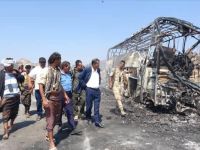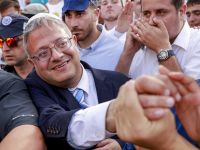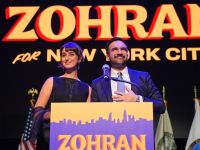The OPEC oil cartel opened a landmark summit Wednesday, pledging to work for market stability and to discuss consumer fears. The delegates, however, snubbed calls for concrete action to cut soaring prices.
Meanwhile, the summit was also urged to consider demanding an end of to the UN sanctions against OPEC member Iraq, imposed after the 1991 Gulf War.
In a rabble-rousing speech opening the two-day gathering, Venezuelan President Hugo Chavez offered dialogue with consumer states -- but not without conditions.
"We are willing to talk with anybody, anywhere at any time, but as equals," Chavez said, noting that he had recently received a call from a president of a "powerful" industrialized country.
"It was good that we talked. But why don't we discuss the foreign debt that crushes poor countries, why don't we discuss terms of trade that are so unequal, and the savage imposition of economic systems?" he said.
The gathering of sovereigns and presidents of the Organization of Petroleum Exporting Countries (OPEC) was only the second in the cartel's 40-year history.
The assembled leaders include Iranian President Mohammed Khatami, Saudi Crown Prince Abdullah, Indonesian Abdurrahman Wahid, Nigerian President Olusegun Obasanjo and Iraqi Vice-President Taha Yassin Ramadan.
OPEC has come under heavy pressure to help bring down crude prices, which have soared to 10-year highs in recent weeks, sparking consumer protests notably in Europe and warnings of a global economic slowdown.
But OPEC leaders gathered for the summit, the first such gathering in 25 years, rebuffed any immediate prospect of a new production hike, following three increases already in the last 12 months.
And they insist that industrialized nations should lower taxes on oil if they wanted to ease the burden on consumers.
"We have excess supply on the market," Iranian Oil Minister Bijan Namdar Zanganeh said as OPEC ministers approved a final statement to be adopted when the summit closes Thursday.
Saudi Crown Prince Abdullah Bin Abdel Aziz said Riyadh was willing to release however much oil was needed to stabilize markets -- but he also criticized industrialized countries for what he said were "unjust" taxes.
The summit is due to end Thursday with a solemn declaration, expected to stress the group's solidarity and commitment to market stability, as well as pledging to hold such high-level OPEC meetings more regularly.
The severity of the global oil crisis was underscored by the United States' decision last week to tap into the Strategic Petroleum Reserve (SPR), a move not taken since the Gulf War.
Soaring crude prices, which surged to 35 dollars a barrel in recent weeks, dipped in response to the US decision at the start of the week, but firmed again on the eve of the Caracas summit. In New York light sweet crude for November delivery stood at 31.46 dollars Wednesday.
The price spikes have sparked protests around the globe, and especially in Europe, where blockades initially in France have spread across the continent in the past few weeks.
It also emerged this week that some European Union (EU) member states may have already been drawing on their oil reserves.
Meanwhile Chavez urged OPEC members to condemn UN sanctions imposed against OPEC member state Iraq following the 1991 Gulf War, which have stopped it from taking a full role in the cartel.
Iraqi Vice-President Ramadan, lashing out at the United States in particular, reiterated Baghdad's demand the sanctions be ended.
"Lifting the embargo would be beneficial for market stability and for correct international relations," he said.
Chavez asked other delegates to consider the request, before they resume their talks again Thursday morning - CARACAS (AFP)
© 2000 Al Bawaba (www.albawaba.com)







